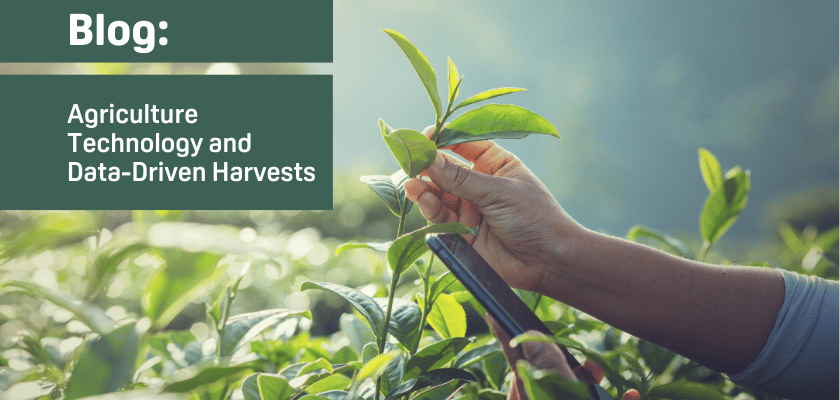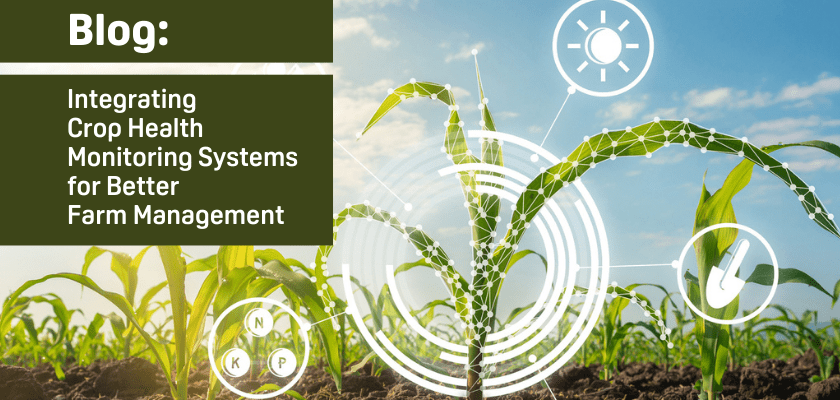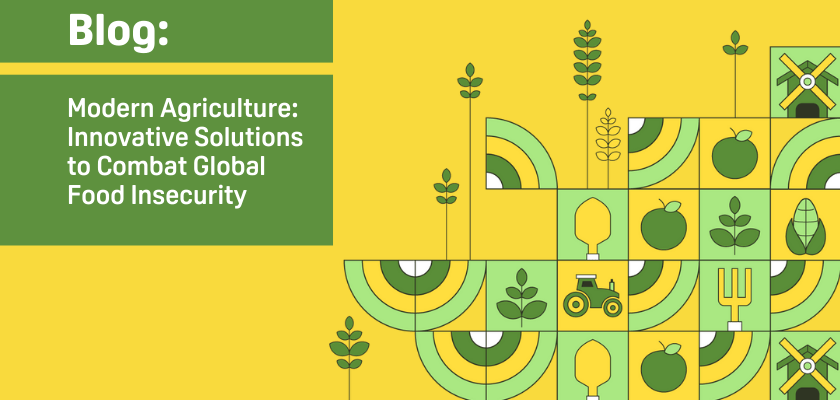

The Ultimate Guide to Irrigation: Leveraging AgTech for Efficient Water Management
Smart irrigation systems can save up to 50% of the water used by traditional methods, reducing the reliance on groundwater and decreasing the costs associated with water procurement. Moreover, these systems minimize the need for manual labor and fuel consumption, as they optimize irrigation schedules and reduce the frequency and volume of water application.
Published on 25 April 2024
In the face of escalating global water crises and the increasing demand for agricultural efficiency, smart irrigation is a crucial component of sustainable farming. Doktar's innovative AgTech products, notably the Filiz series and Orbit, are at the forefront of revolutionizing irrigation practices. By integrating technology into everyday farming operations, these tools enhance crop yield and significantly reduce the consumption of valuable resources such as water and energy. This guide delves into how integrating technology like Filiz and Orbit, along with the intelligent use of FlowMeter, can transform irrigation into a data-driven science that enhances crop yield and conserves vital water resources.
Understanding Different Irrigation Methods and Their Impact
Irrigation is not a one-size-fits-all practice; the effectiveness of irrigation depends significantly on choosing the appropriate method tailored to the crop, soil type, and climatic conditions. Here's an overview of common irrigation techniques, each with its own set of advantages and challenges:
Drip Irrigation: This method involves delivering water directly to the roots of plants through a network of valves, pipes, and tubing. Drip irrigation is highly efficient in water use, reducing evaporation and runoff. It's particularly effective in arid regions and crops requiring precise water management. However, installing it can be costly and requires regular maintenance to prevent clogging and damage.
Sprinkler Irrigation: Similar to natural rainfall, water is distributed over the crops using a system of pumps and spray nozzles. This method is suitable for various crops and especially beneficial for large fields. The significant drawbacks include water loss due to evaporation and wind drift, so it may not be ideal for areas with water scarcity.
Surface Irrigation: Also known as flood or furrow irrigation, this is one of the oldest methods where water flows over the soil by gravity. It is less expensive to implement and suitable for a wide range of topographies and soil types. However, it is one of the least efficient irrigation methods since it causes water overuse and prevents precise water management.
Subsurface Irrigation: Water is supplied directly below the soil surface, close to the root zone. This method can significantly reduce evaporation and is ideal for row crops. The primary considerations of this method are the initial installation cost and design complexity.
Understanding the advantages and disadvantages of these irrigation methods is crucial for farmers to make informed decisions that align with their operational needs and environmental conditions. By recognizing each field's specific requirements and matching them with the appropriate irrigation method and technology, farmers can optimize water usage, enhance crop production, and mitigate the environmental impact of farming practices. This foundational knowledge of irrigation methods sets the stage for a deeper exploration of how Doktar's innovative solutions, like Filiz and Orbit, can effectively address modern agriculture's unique challenges.
Understanding the Role of AgTech in Irrigation
Agricultural technology (AgTech) is rapidly transforming the irrigation field, introducing more precise and controlled ways to manage water resources in farming. By integrating advanced technologies such as IoT devices, sensors, and data analytics, AgTech solutions like Doktar's Filiz and Orbit provide farmers unprecedented control over their irrigation practices, ensuring optimal growth conditions and efficient water usage.

Precision and Control: AgTech devices can accurately measure soil moisture content, temperature, and other environmental factors. This data is crucial for automating irrigation systems to deliver the exact amount of water needed at the right time, minimizing waste, and maximizing water use efficiency. For instance, Filiz sensors provide specific data points from various soil depths, allowing for more targeted irrigation that meets the precise needs of plants at different growth stages.
Data-Driven Decisions: With the help of AgTech, irrigation management has moved from a largely guesswork-based practice to a data-driven approach. Real-time data collected from fields allows farmers to make informed decisions that directly impact the health of their crops and the sustainability of their resources. This shift not only improves crop yields but also reduces the environmental footprint of farming operations by conserving water and reducing runoff that can lead to soil erosion and nutrient depletion.
Sustainability: In an era where water scarcity is becoming a more pressing global issue, AgTech is pivotal in promoting sustainable water use. Technologies like Orbit and FlowMeter create detailed water usage reports and predictive analytics for future water needs, helping farmers plan better and use water resources more judiciously. Incorporating AgTech into irrigation practices is not just about improving efficiency and yields; it's about fundamentally changing how resources are managed in agriculture. By leveraging the power of technology, farmers can achieve more sustainable, profitable, and environmentally friendly farming practices, setting a new standard for the agricultural industry.

The Importance of Real-Time Data
Real-time data is at the core of efficient agricultural practices, particularly irrigation management. Doktar's products, like the Filiz sensor stations, provide immediate insights into soil moisture and weather conditions, enabling farmers to respond quickly to the needs of their crops. Water stress can severely impact plant health and reduce crop yield, whether due to excess or insufficient soil moisture. Excessive water can lead to root diseases and reduced oxygen availability, affecting plant growth. Conversely, inadequate water supply can stress plants, impeding their ability to absorb nutrients and perform photosynthesis effectively.
By leveraging real-time data from Filiz, farmers can detect the onset of water stress at critical growth stages of the crop, allowing for immediate adjustments to irrigation practices. This proactive approach ensures optimal plant health and can significantly enhance yields. The data provided helps maintain the perfect balance of soil moisture, which is crucial for maximizing crop output and ensuring high quality. Additionally, this data-driven approach facilitates water conservation, which is increasingly important in regions facing water scarcity and regulatory pressures on water usage. Thus, real-time data supports sustainable agricultural practices and boosts profitability by enhancing yield and reducing resource wastage.

Addressing Irrigation Inefficiencies
Traditional irrigation methods often lead to significant water loss due to evaporation, runoff, or sub-optimal application techniques, which waste valuable water resources and reduce the effectiveness of irrigation efforts. However, integrating smart technologies like Filiz and Orbit solves these longstanding inefficiencies. Filiz, for instance, monitors soil moisture levels in real-time and suggests irrigation schedules that precisely match the crop's water requirements at any given time. This targeted irrigation approach ensures that water is only applied when and where needed, reducing runoff and evaporation. Moreover, technologies like Orbit's Plant Water Stress Map provides soil moisture information generated by remote sensing technology.
By leveraging Filiz and Orbit, farmers can overcome traditional irrigation inefficiencies, leading to significant improvements in water conservation, crop yield, and overall farm profitability. These smart tools ensure that every drop of water is put to its best use and support the global movement towards more sustainable and efficient agricultural practices.
What Not to Do in Irrigation
In optimizing irrigation practices, several pitfalls should be avoided to ensure efficient water use and crop health:
Do Not Over-Irrigate: Over-irrigating can lead to waterlogging, which reduces soil oxygen availability and can cause root diseases. Additionally, excessive watering increases the risk of nutrient leaching, diminishing soil fertility over time.
Avoid Rigid Scheduling: Relying solely on a predetermined irrigation schedule without considering real-time data can lead to ineffective watering. Conditions such as sudden weather changes or varying soil moisture levels require dynamic scheduling to adapt to the crop's immediate needs.
Do not Ignore Plant-Specific Needs: Each crop variety has unique water requirements. Ignoring these specific needs and applying a one-size-fits-all irrigation approach can stress the plants by overwatering or underwatering, ultimately affecting their growth and yield.
By steering clear of common irrigation mistakes and utilizing advanced AgTech tools, farmers can secure a more sustainable and profitable future.
What to Do: Enhancing Irrigation with Orbit
Integrating AgTech products like Filiz and Orbit revolutionizes irrigation practices by allowing precise control and monitoring of water use, ensuring that crops receive the right amount of water at the right time. This precision enhances crop yields, conserves water, and serves as a cornerstone for sustainable agricultural practices. As the agricultural sector continues to face challenges like water scarcity and increased demand for production efficiency, adopting smart irrigation technologies is not merely beneficial—it's essential for the future of farming.

Orbit is designed to significantly enhance irrigation management through a suite of advanced features that leverage real-time data and satellite technology:
Custom Irrigation Scheduling: By analyzing data on soil moisture levels, plant water needs, and hyper-local weather forecasts, Orbit enables the creation of tailored irrigation schedules. These schedules ensure optimal water use, applying water only when necessary and in the amounts required to maintain ideal soil moisture.
Plant Water Stress Map: Orbit provides a detailed visualization of water stress levels across different field areas. This feature allows farmers to identify specific zones that are either under or over-irrigated, enabling precise adjustments to irrigation practices to prevent plant stress, which can lead to reduced yield or crop failure.
Weather Preparedness: Utilizing advanced forecasting tools, Orbit helps farmers anticipate and plan for weather changes that could impact irrigation needs. Whether it's an unexpected heatwave or a sudden downpour, Orbit's timely data helps farmers adjust their irrigation strategies to protect crops and conserve water.
Each capability integrates seamlessly to provide a holistic irrigation management system that conserves resources while maximizing crop productivity. By using Orbit, farmers can take proactive steps to optimize their irrigation practices, ensuring sustainability and efficiency in their agricultural operations.
Conclusion
Embracing smart irrigation technologies such as Doktar's Filiz, Orbit and FlowMeter represents more than an advancement in agricultural practices; it signifies a proactive step towards sustainable and resilient farming. These systems not only optimize water use, enhancing the efficiency of agricultural operations but also play a critical role in preserving our most precious resource: water. With Filiz, Orbit and FlowMeter, farmers can respond dynamically to their crops' needs, ensuring maximum productivity while minimizing environmental impact.
In an era when sustainability is as crucial as productivity, Doktar's AgTech solutions offer farmers a powerful toolset to meet the dual challenges of resource conservation and food production. By integrating these advanced technologies, farmers can ensure that every drop of water is effectively utilized, contributing to a more sustainable agricultural future.
For those interested in exploring how Doktar's innovative solutions can transform your agricultural practices, visit our website for detailed information on all our products. Stay updated with the latest developments by following us on Instagram and LinkedIn, where we share insights, tips, and updates about our technologies and their impact on modern farming.

Agriculture Technology and Data-Driven Harvests
The convergence of agriculture technology and data-driven solutions represents the next frontier of innovation in farming. With companies like Doktar leading the way, farmers can leverage these advancements to improve productivity, reduce environmental impact, and secure a more sustainable future for agriculture. Whether through precision agriculture, sustainable agriculture, or cutting-edge smart agriculture technology, the future of farming is bright, and data is at the heart of this transformation. Technology's positive impact on this future should inspire and motivate us all.

Integrating Crop Health Monitoring Systems for Better Farm Management
Crop health monitoring systems revolutionize modern agriculture by enabling real-time insights into plant health, reducing losses, and promoting sustainability. Tools like Doktar’s CropMap and Orbit integrate advanced technologies, empowering farmers with data-driven decisions. By enhancing efficiency and sustainability, these systems are essential for future-proofing agricultural operations.

Modern Agriculture: Innovative Solutions to Combat Global Food Insecurity
Modern agriculture combats global food insecurity with precision agriculture, sustainable practices, and biotechnology. Tools like IoT, automation, and crop innovations optimize resource use, enhance resilience, and ensure stable food supplies. By integrating smart technologies, agribusinesses address challenges like climate change and resource scarcity, paving the way for a sustainable food future.
